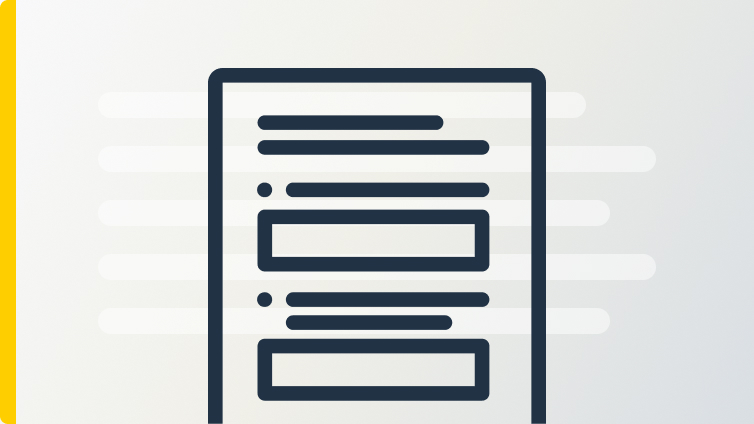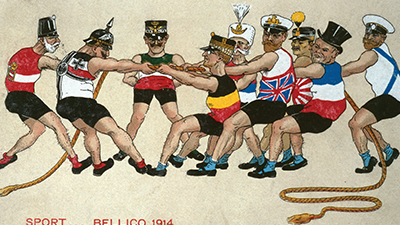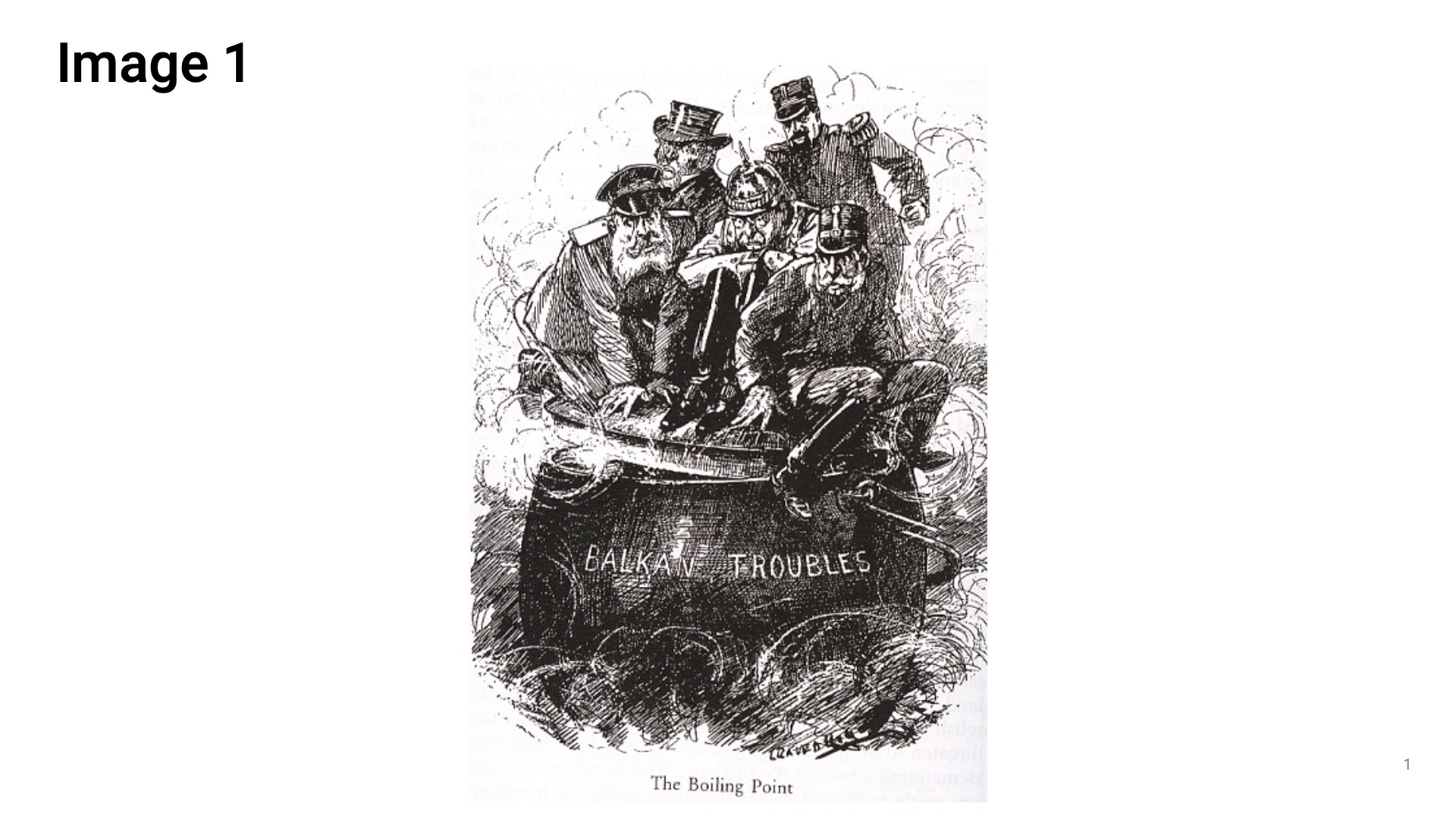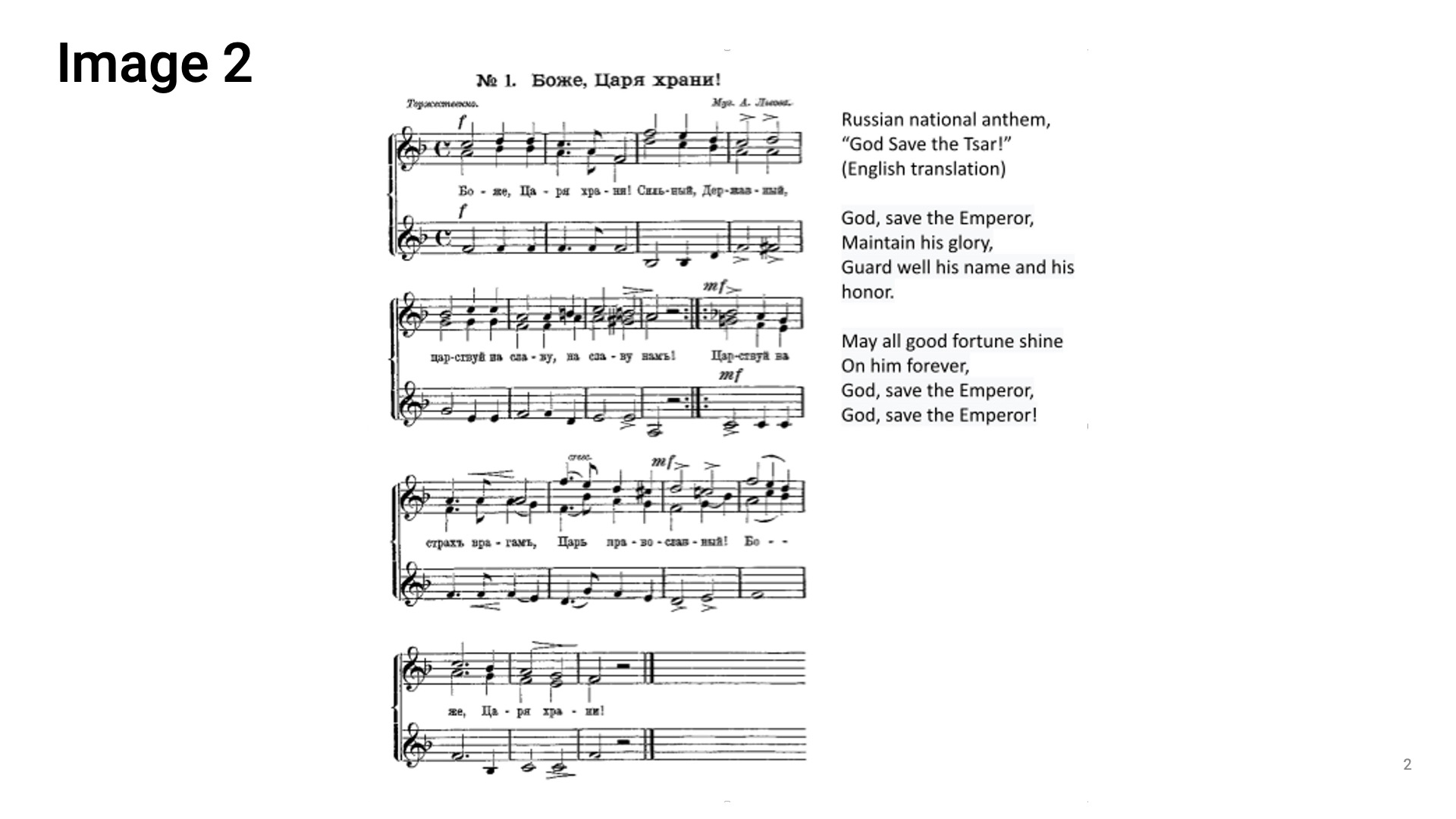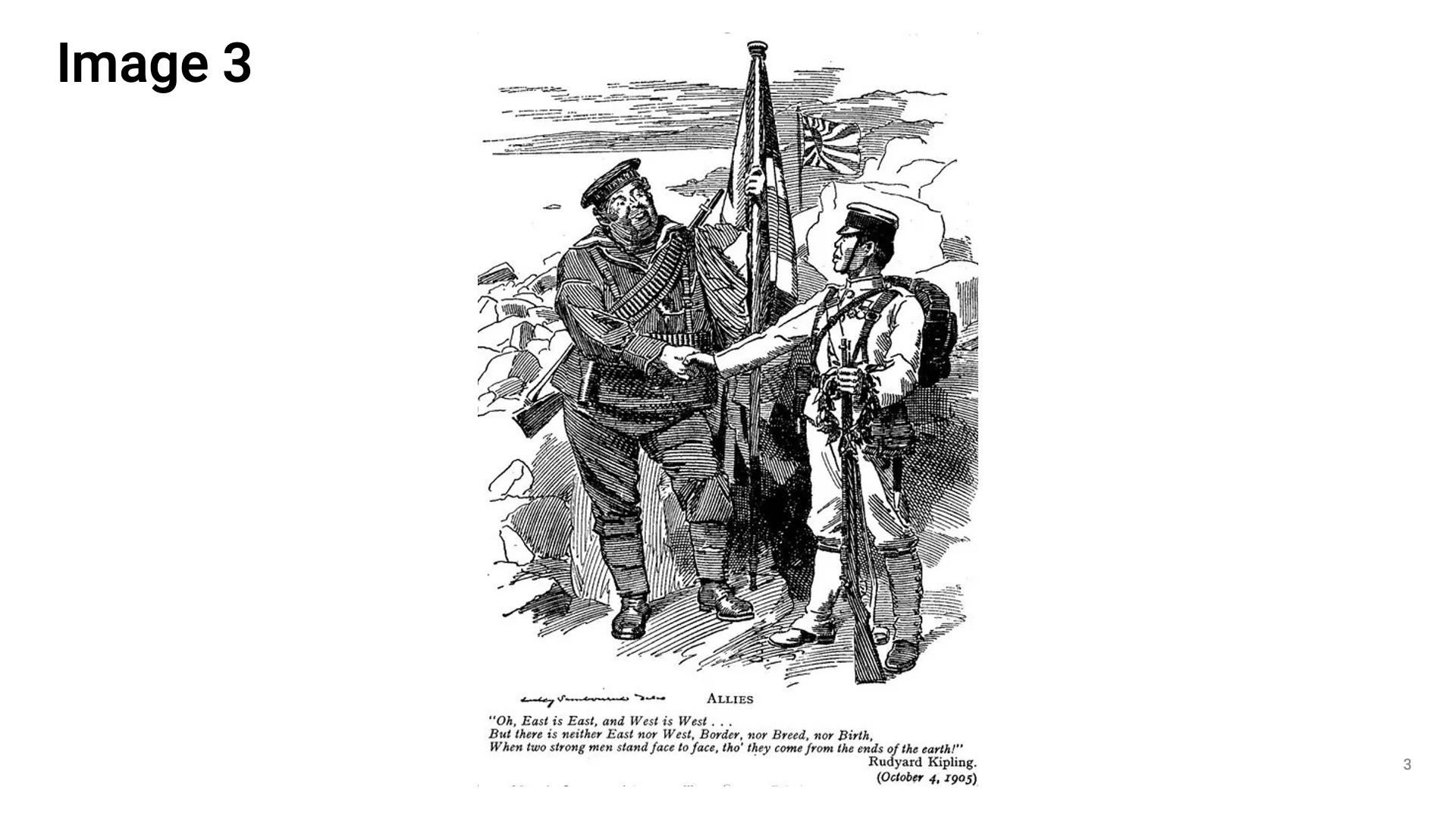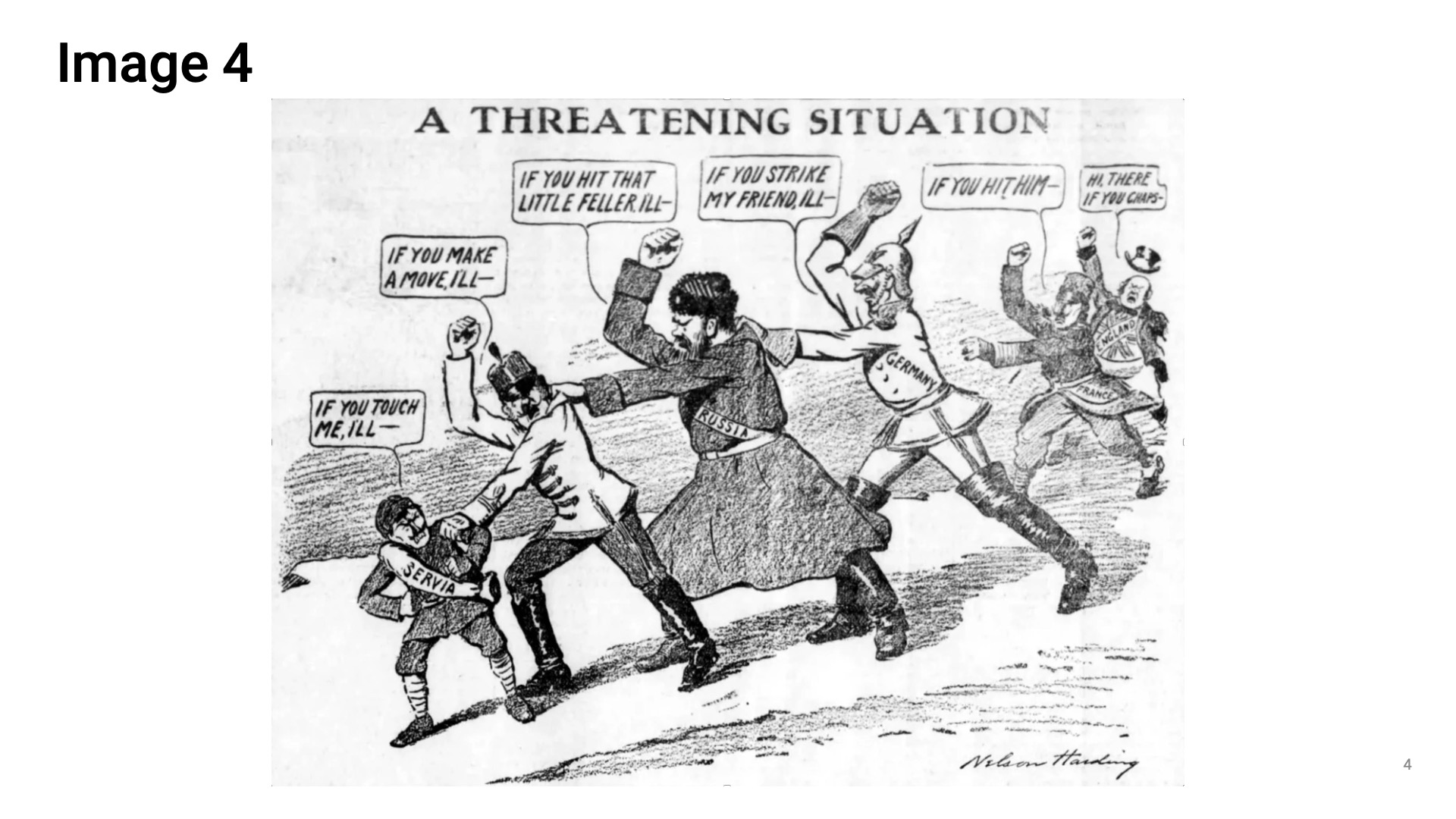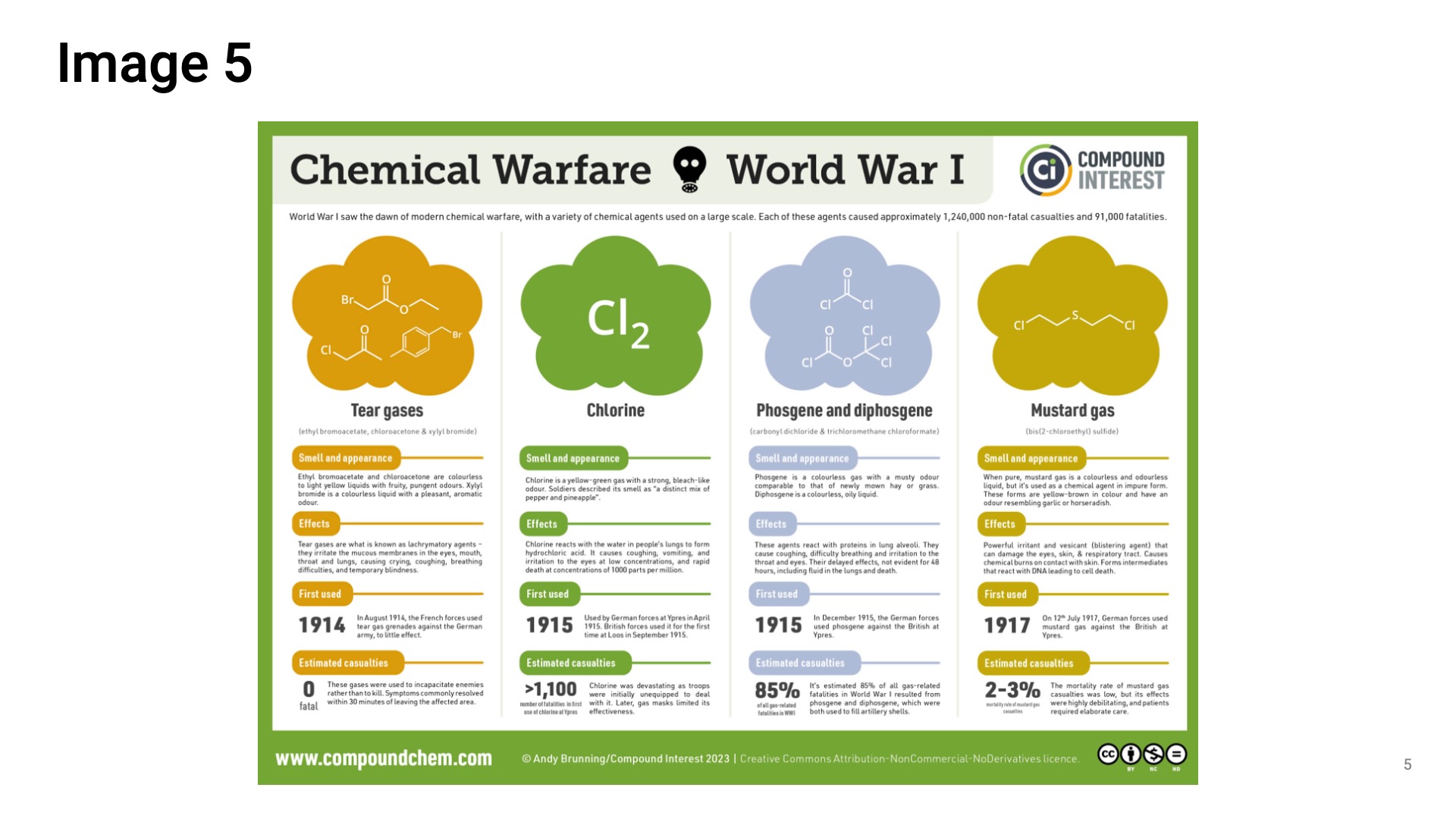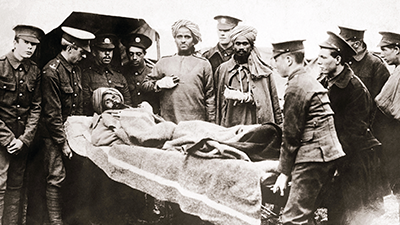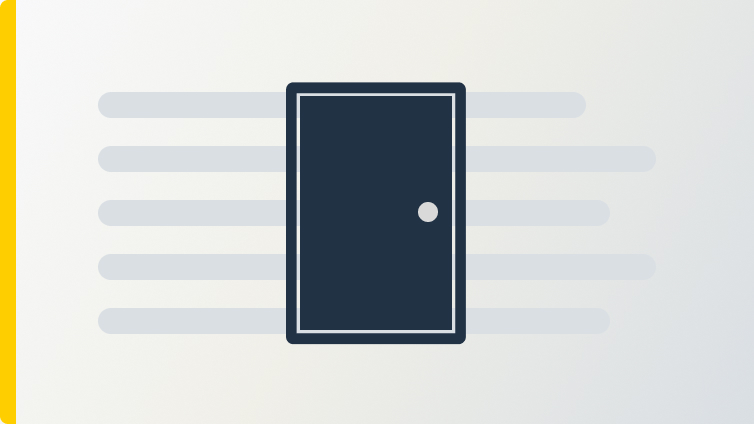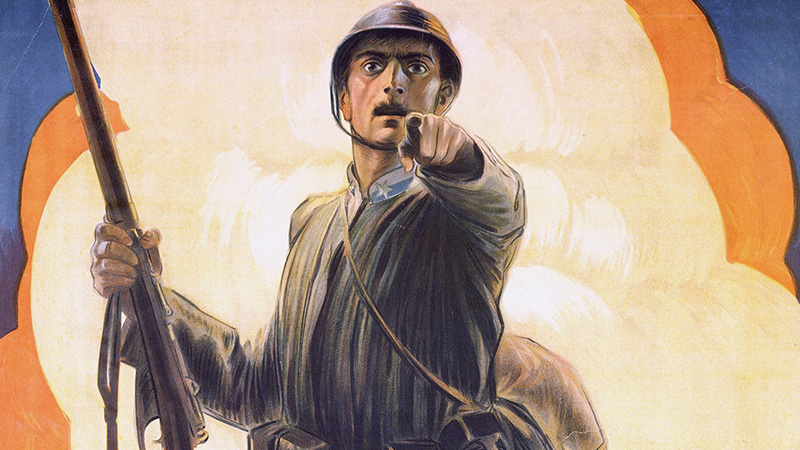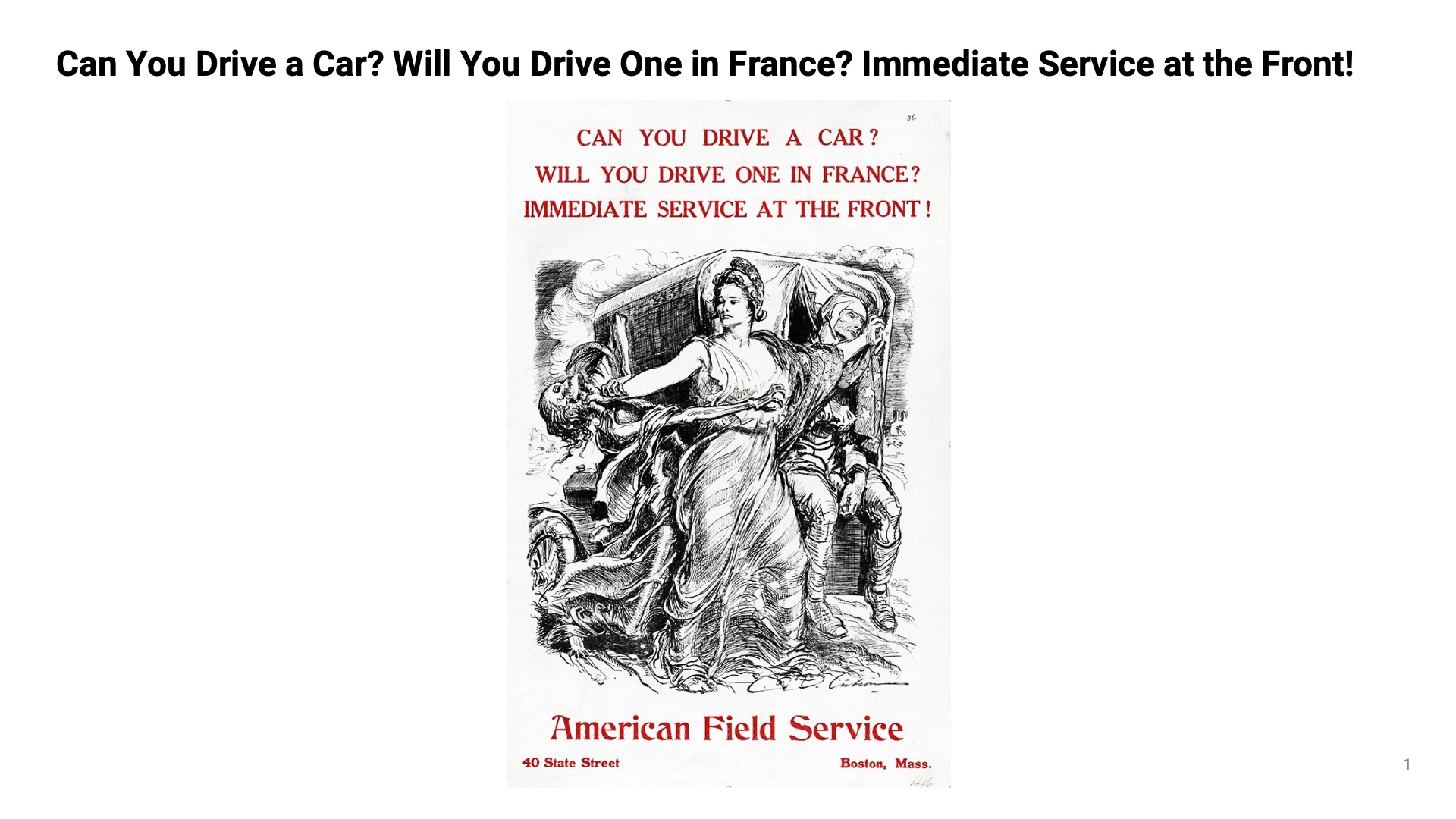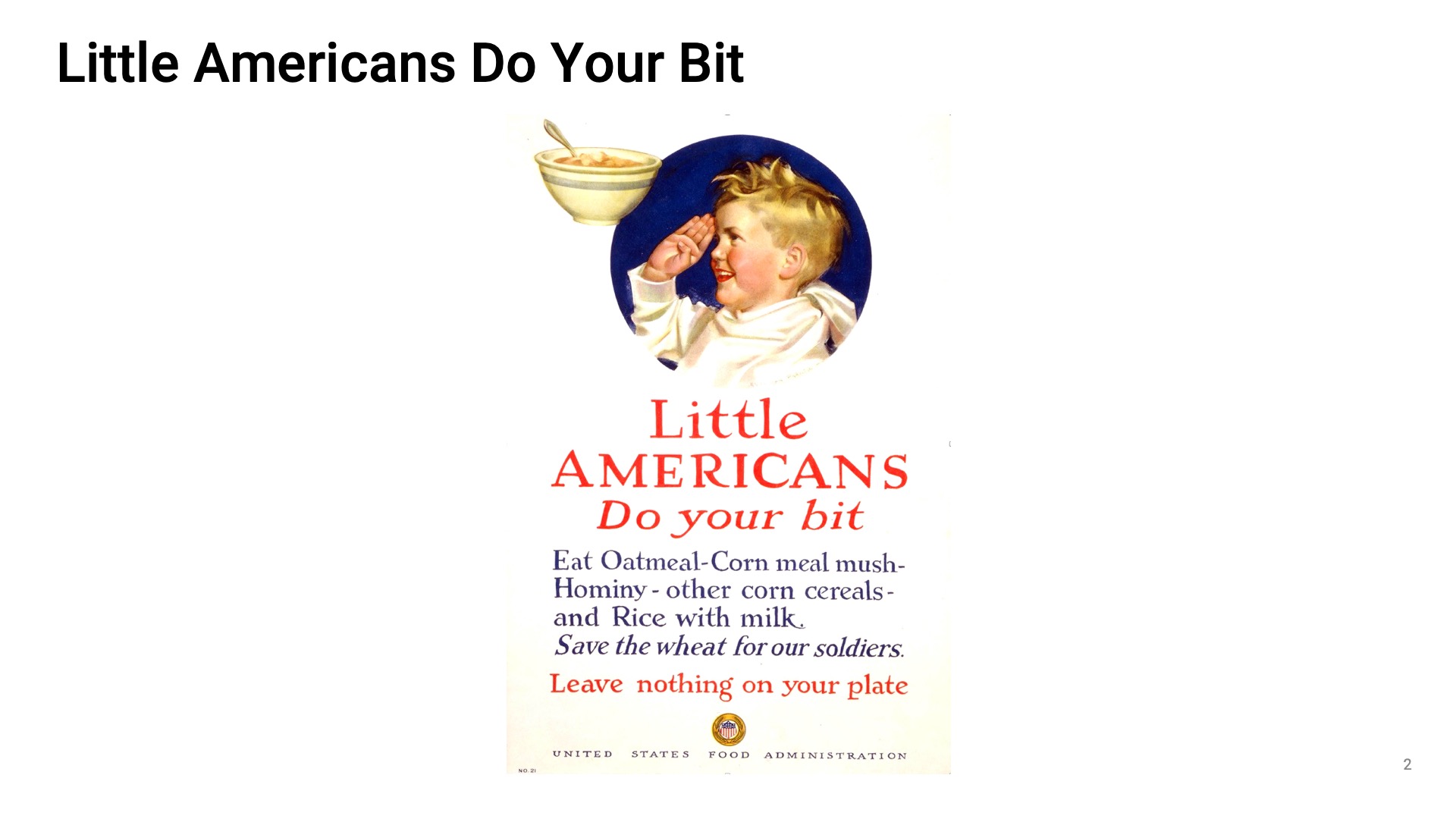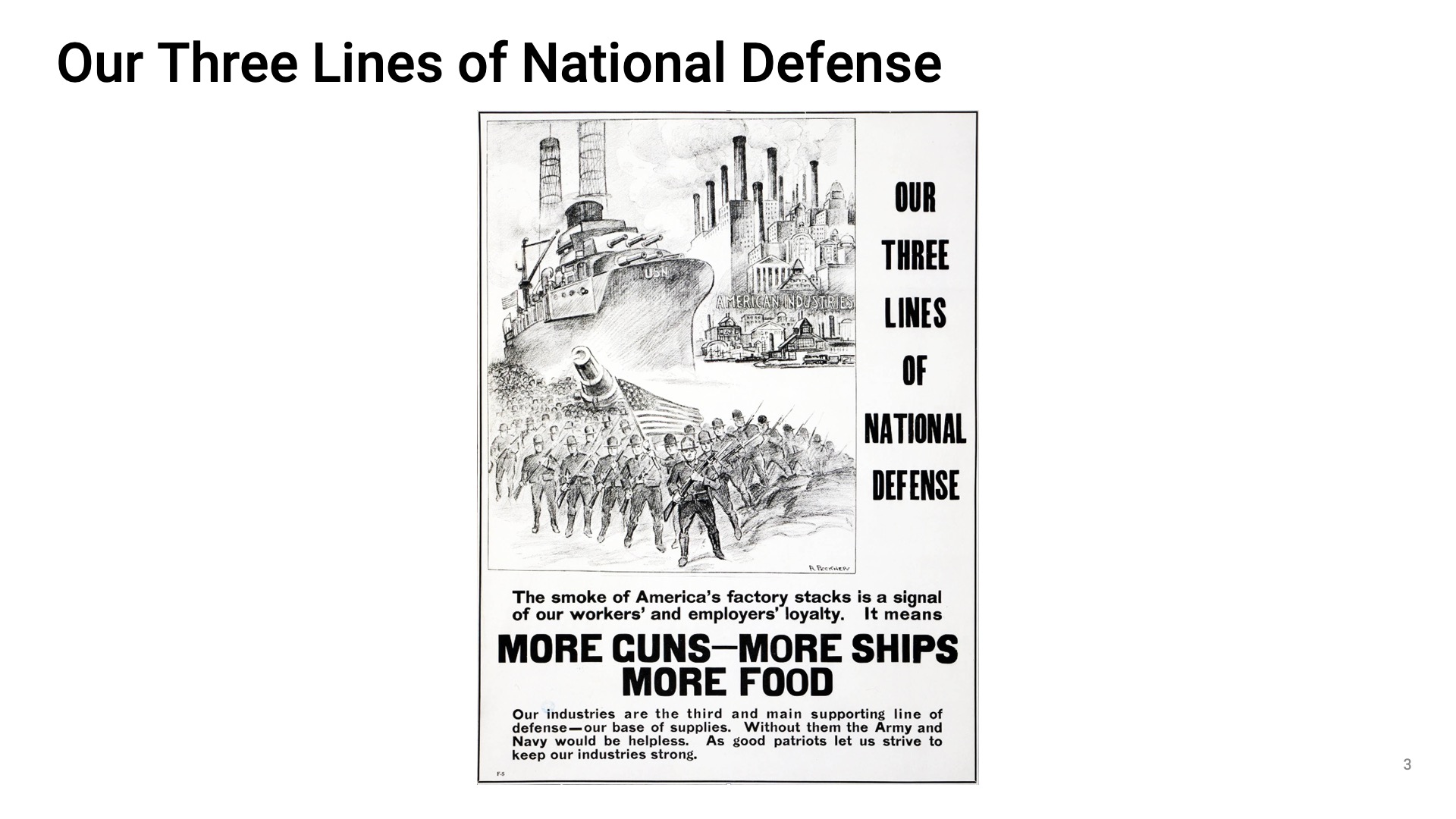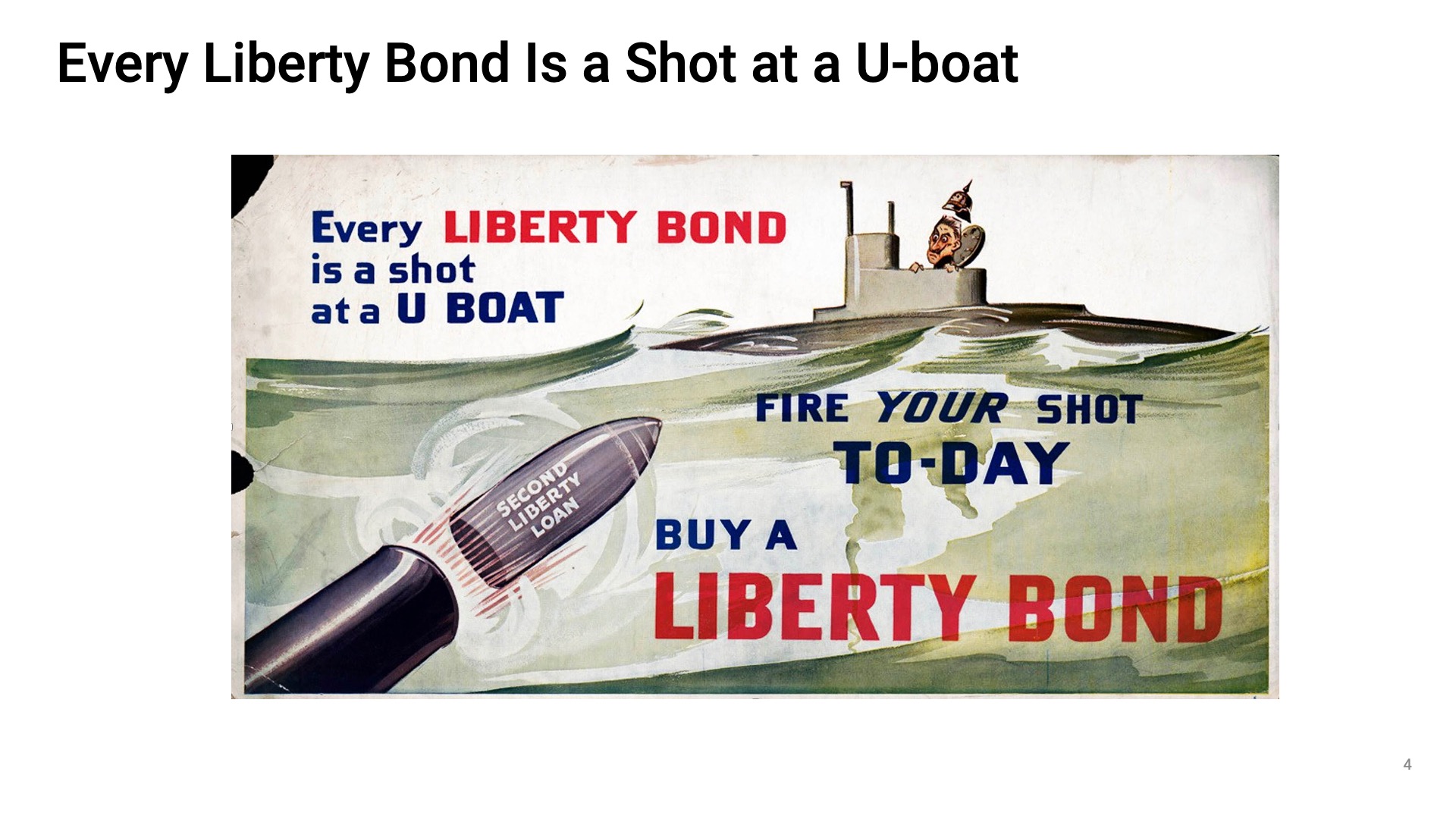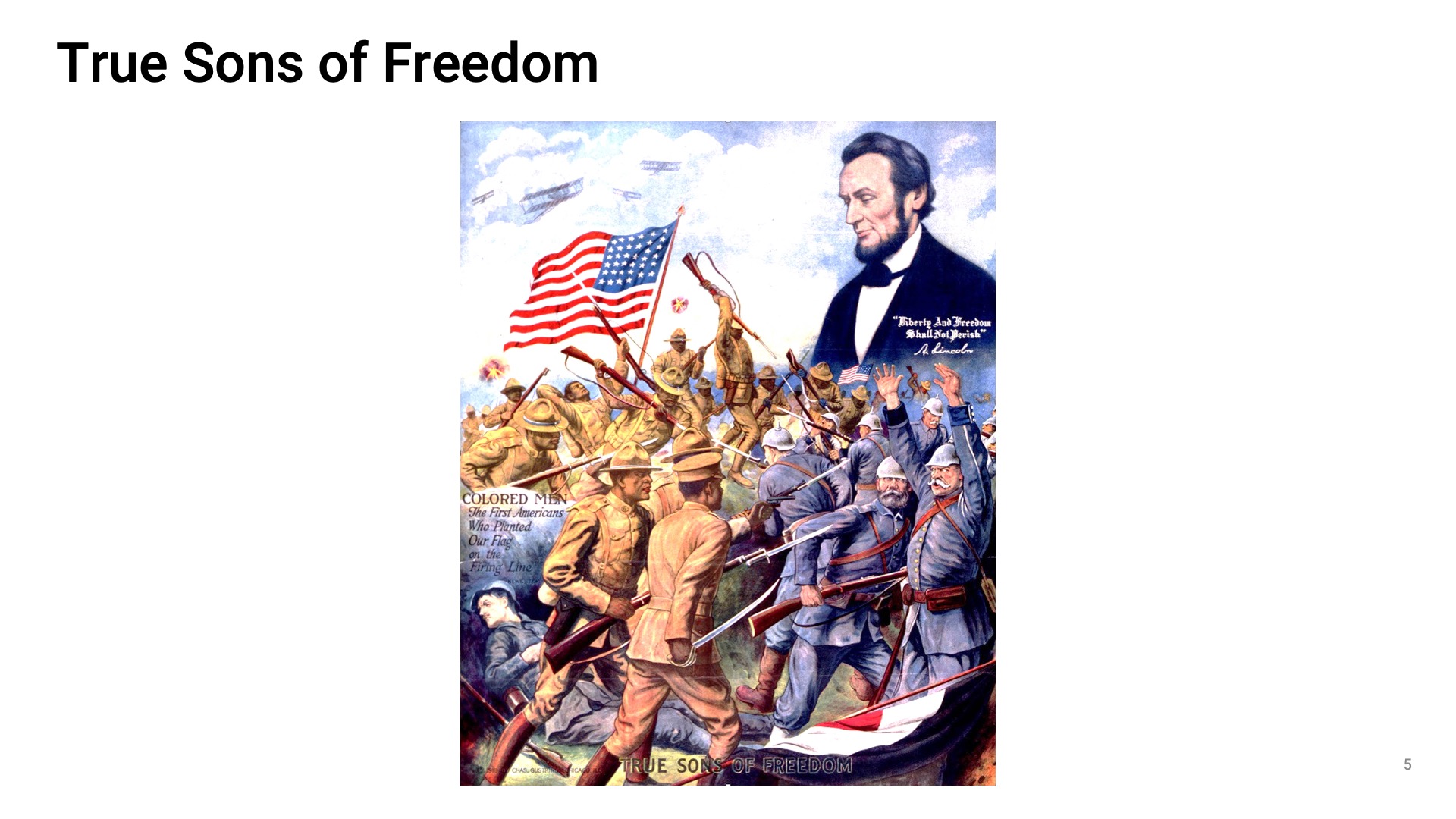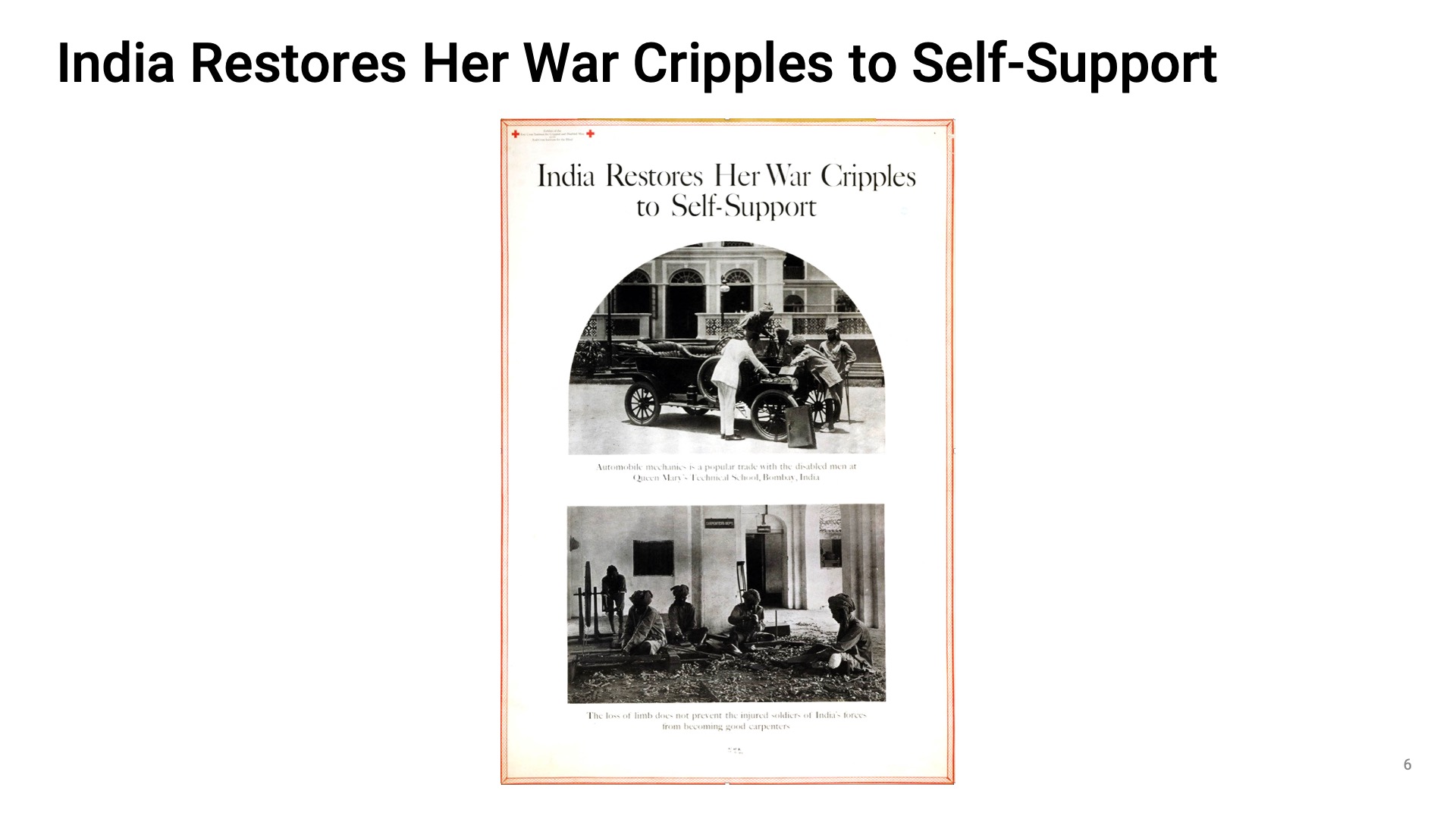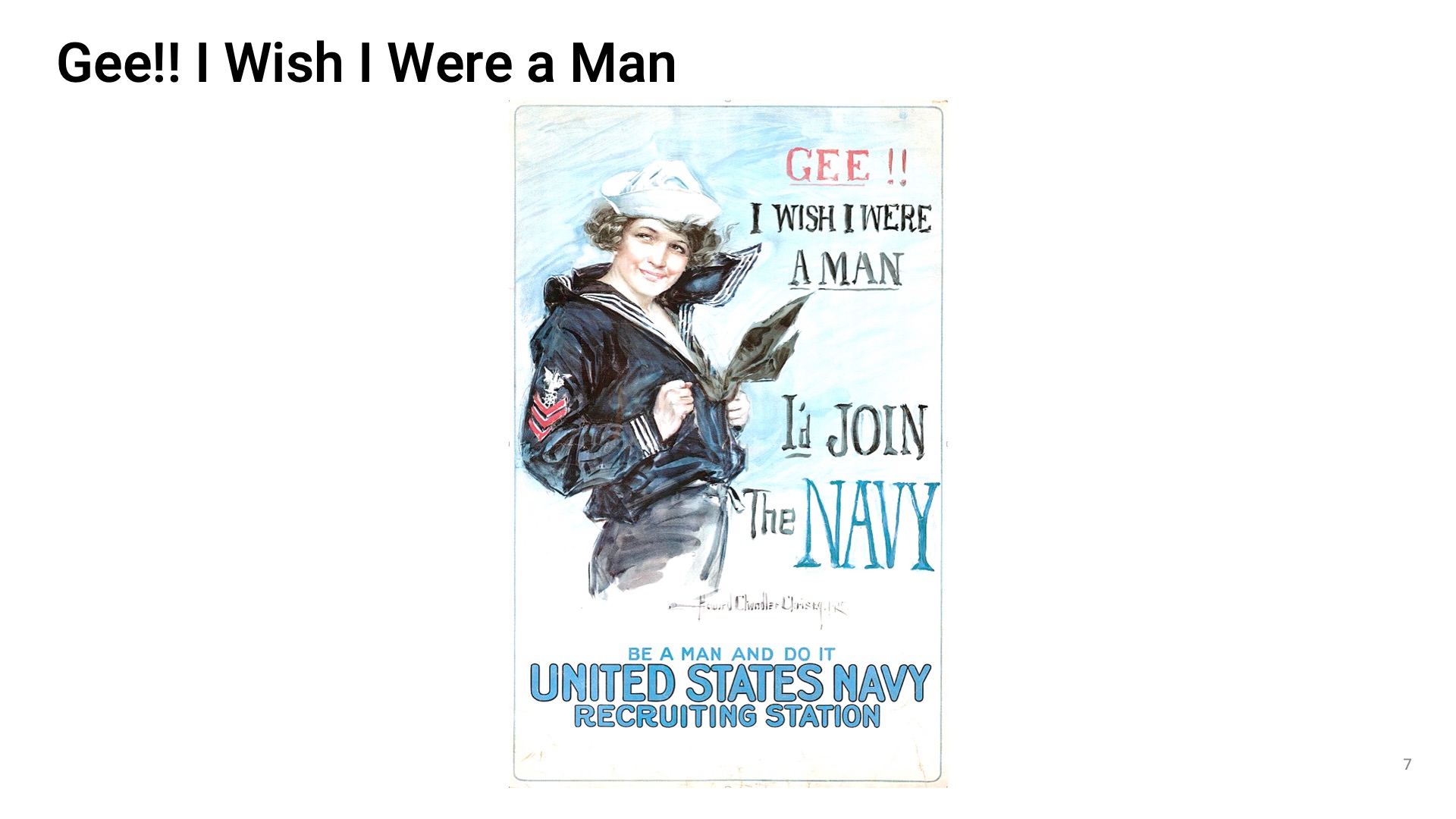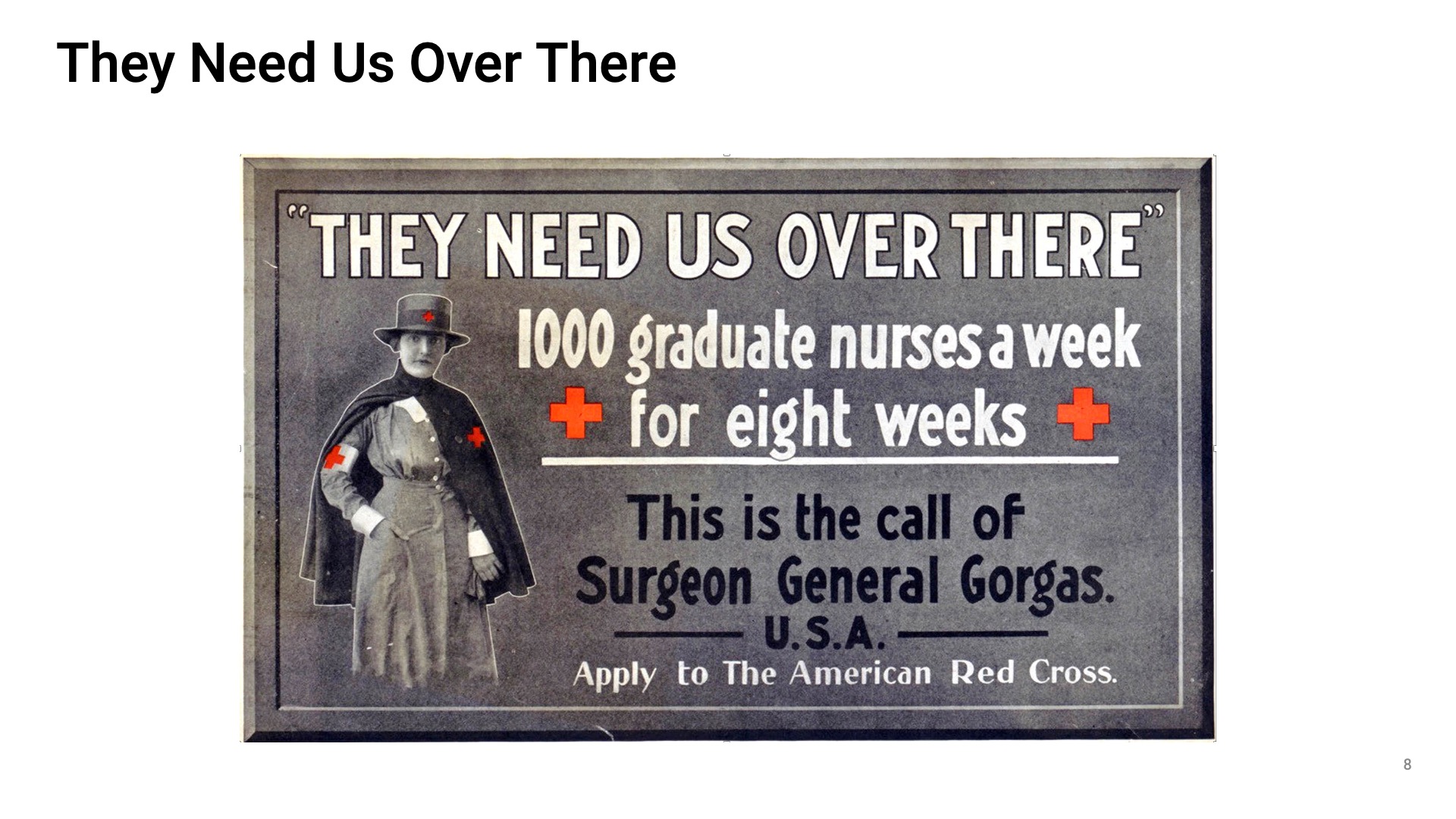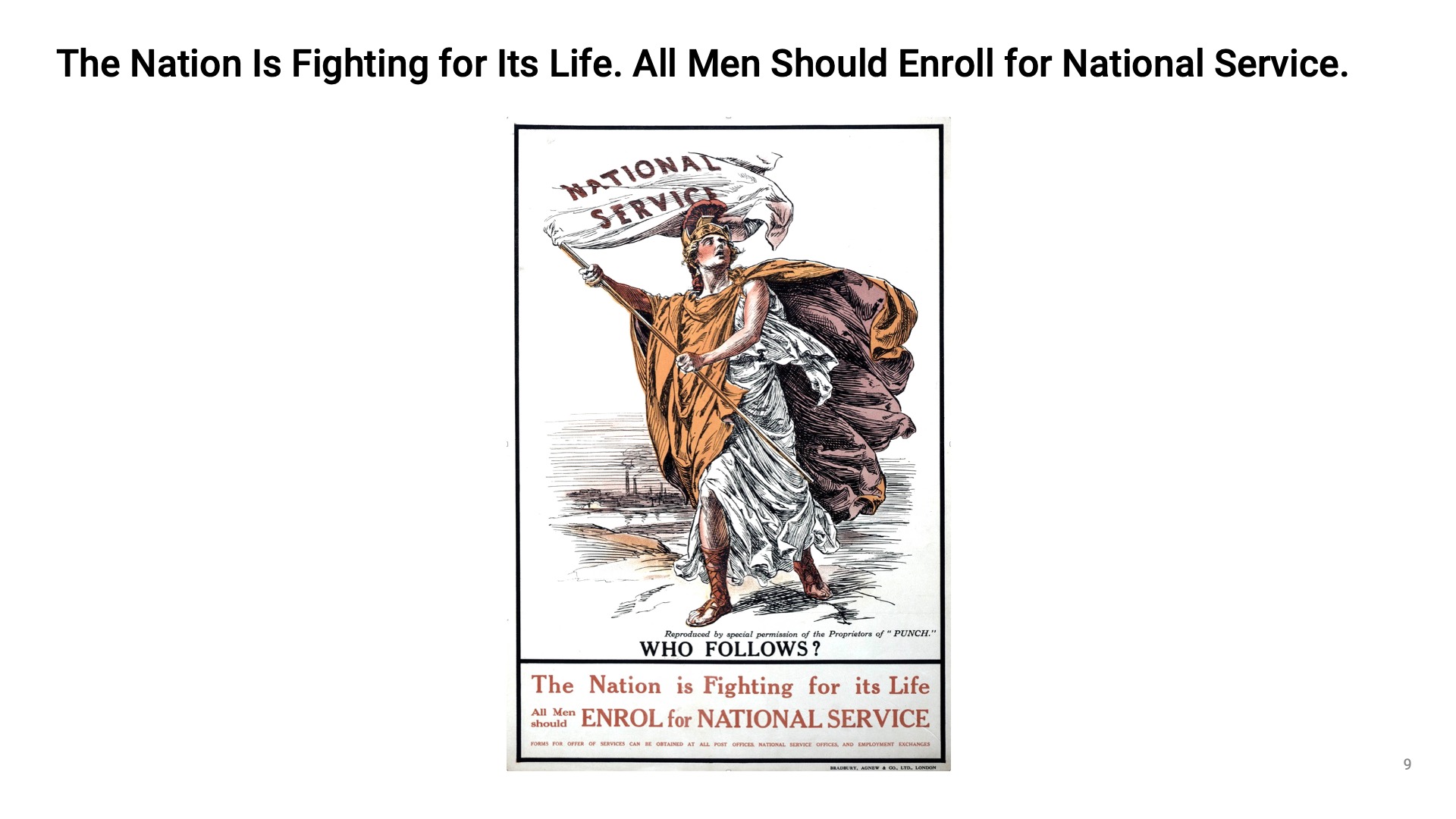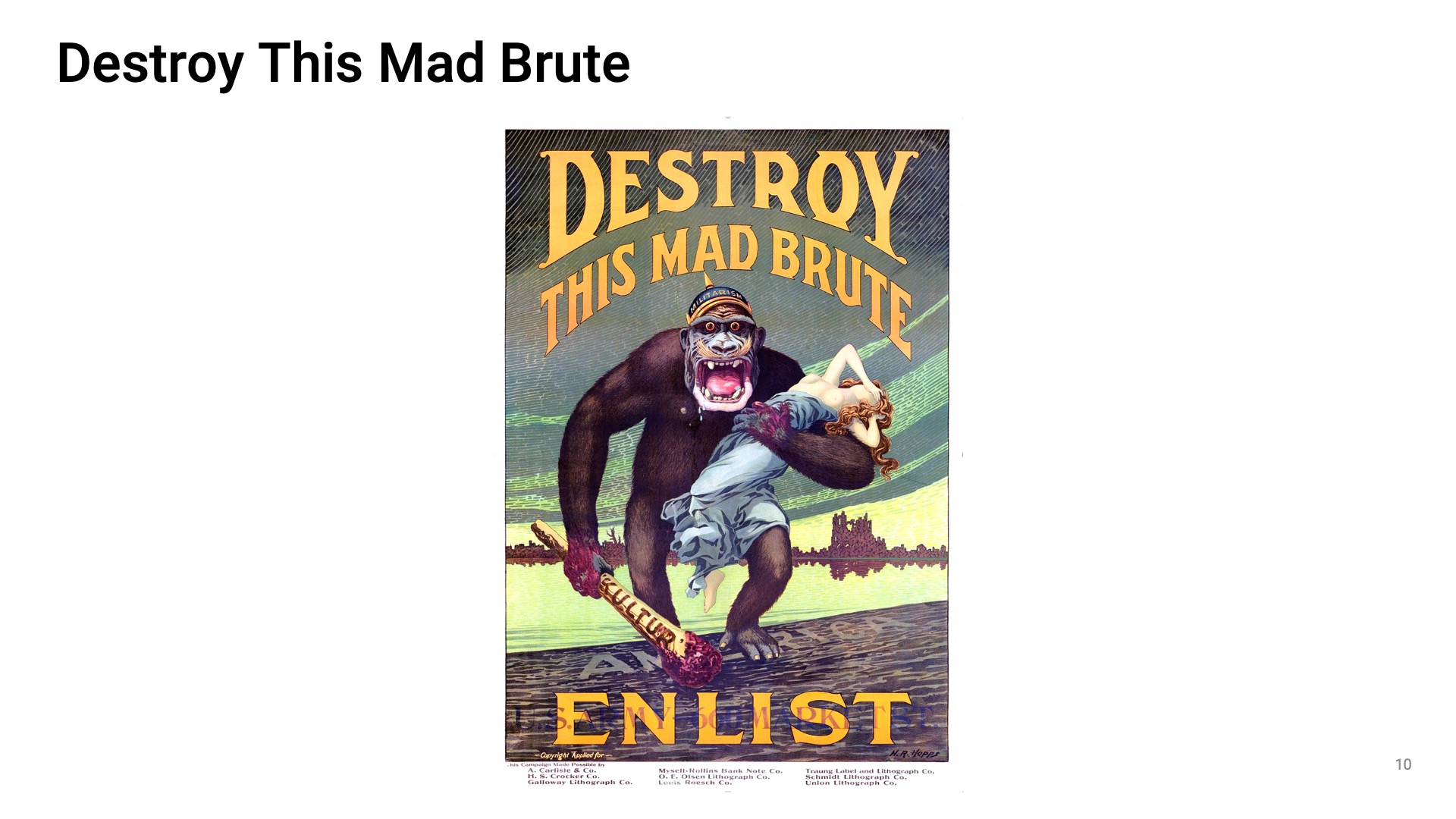Causes of the First World War
Driving Question: What caused World War I?
Military forces grew, alliances solidified, and tensions rose across continents. When war finally came, it was no accident; it was the result of systems pushed to the breaking point.
Learning Objectives:
- Use causal-thinking skills to evaluate the factors that led to the outbreak of World War I.
- Use image-analysis skills to assess how propaganda was used in World War I.
Vocab Terms:
- alliance
- assassination
- ethnic
- mobilization
- nationalism
- propaganda
- total war
Opener: Causes of the First World War
To teach this lesson step, refer to page 2 of the Lesson 8.2 Teaching Guide.
Curious about what other teachers are doing with maps? The Community thread How do you use maps in your classroom? has great ideas!
Use your knowledge of the nineteenth century and a 1914 world map to make predictions about the coming war. Who’s involved—and what might happen next?
A War to End All Wars
To teach this lesson step, refer to page 3 of the Lesson 8.2 Teaching Guide.
Use the Three-Step Reading Worksheet to help evaluate what kinds of supports students need in unpacking texts.
Unpack the tangled web of alliances, rivalries, and political choices that led to war in 1914. This section helps you sort through long-term causes and immediate sparks.
-
Guiding Questions
-
Before you read
Preview the questions below, and then skim the article. Be sure to look at the section headings and any images.
While you read
Look for answers to these questions:
- Why was Franz Ferdinand assassinated?
- How did alliances lead to war?
- How did imperialism contribute to the war?
- Why did industrialization make a big war more likely?
- Is it possible the war started by accident? How?
After you read
Respond to this question: If you could change events of the long nineteenth century, what would you change in order to prevent World War I?
"MAIN" Causes of War
The First World War
To teach this lesson step, refer to page 4 of the Lesson 8.2 Teaching Guide.
Want to throw yarn but feel like it might get unruly? Learn how other teachers have approached Our Interconnected World: WWI in this Forum thread.
World War I didn’t stay confined to Europe. Explore how deeply interconnected the world already was by 1914, and how those connections turned a regional crisis into a global war.
-
Guiding Questions
-
Before you read
Preview the questions below, and then skim the article. Be sure to look at the section headings and any images.
While you read
Look for answers to these questions:
- What were the main alliances during the war?
- What European factors helped cause the war?
- What global motivations led other countries to join?
- Where did most battles outside Europe take place?
- What were some major consequences of the war?
After you read
Respond to these questions: How did World War I change global networks such as trade, communication, and political alliances? What stayed the same?
Closer: Causes of the First World War
To teach this lesson step, refer to page 8 of the Lesson 8.2 Teaching Guide.
There are a lot of posters to analyze here. Consider using the Three-Step Reading with students to “read” visuals: First, get the big picture. Then, zoom in on details. Finally, think about what the image means. Page 3 of our Reading Guide spells it out.
Now that you've explored the causes of World War I, take a closer look at how those causes were communicated to the public. Propaganda posters reveal what leaders wanted people to believe—and why.
World War I Up Close
To teach this lesson step, refer to page 8 of the Lesson 8.2 Teaching Guide.
World War I changed not just nations, but the lives of everyday people. Analyze a collection of wartime voices and images to explore the many ways war shaped lives, both on the front lines and at home.


